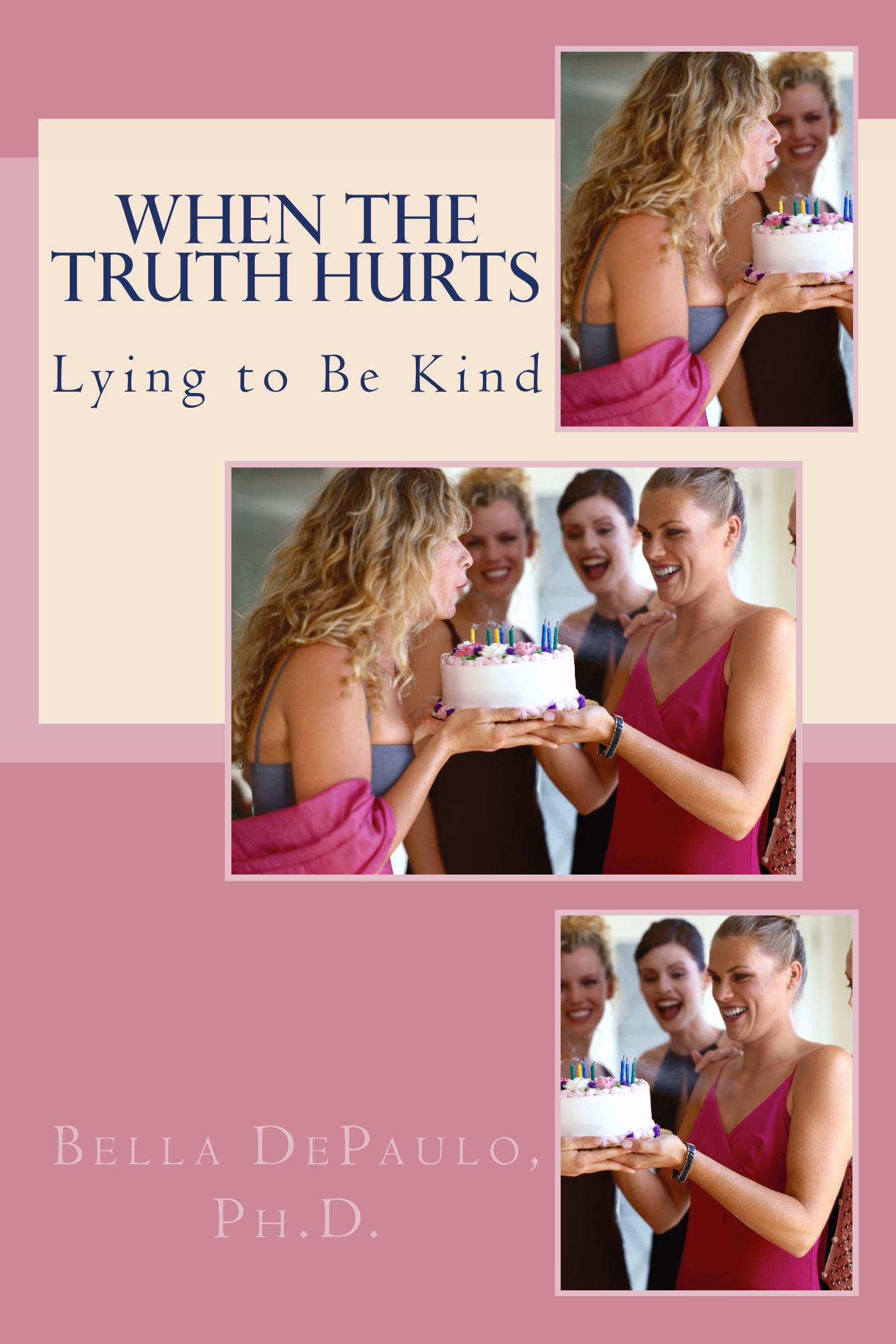
Most people value honesty. They want to tell the truth. They also value kindness. Sometimes, though, honesty and kindness collide. That happens when telling the truth would be hurtful, but being kind involves telling a lie. How do people negotiate this clash of noble intentions?
When the Truth Hurts: Lying to Be Kind is a brief book with two parts. Part 1 is adapted from this chapter: DePaulo, Bella M., Morris, Wendy L., & Sternglanz, R. Weylin (2009). When the truth hurts: Deception in the name of kindness. In Anita L. Vangelisti (Ed.), Feeling hurt in close relationships (pp. 167-190). Cambridge: Cambridge University Press.
In Part 2, questions that various reporters have asked Professor DePaulo over the years are collected and answered.
The first part was written for a scholarly audience but any smart readers will be able to understand it. The second part was written for a broad audience.
Author Bella DePaulo is one of the world's leading experts on the psychology of lying and detecting lies. Visit her website at http://belladepaulo.com/.
Genre: POLITICAL SCIENCE / GeneralThe book has sold modestly in paperback and as an ebook since it was published in 2013.
Everyone lies. It would be impossible to prove that definitively, but we believe it to be so. But we also believe that it is truth-telling, rather than deception, that is the human default position. People typically prefer to tell the truth. They want to be honest, they want to see themselves as honest, and they want other people to see them that way. // Ordinary humans – that is, the vast majority, who are not pathological liars – usually need a reason to lie. Lying, then, often grows out of a conflict. On the one side is the desire to be truthful, and on the other is some goal that cannot be attained (or cannot easily be attained) by telling the truth. Something has to give. If the sought-after prize is sufficiently shiny and bright, then often it is the truth that is left by the wayside. // Lying has a bad reputation. When we think of instances in which people set aside the truth to get what they want, often what we envision as the prize is something rather seedy or at least self-serving. Boatloads of money, for example. Or an ill-deserved promotion. Or 15 minutes of unearned fame. And in fact, people do lie for such reasons. But lies told for crass, materialistic, self-serving reasons are just one slice of the lie-telling pie, and not even a very big one at that. // Sometimes what truth telling bumps up against is not greed but graciousness. That, we think, is the most traveled intersection between lying and hurt feelings. People lie when they cannot both tell the truth, and be kind and gracious, at the same time. Something has to give, and what gives in these instances is usually the truth. In fact, we believe that in situations in which the truth would hurt, our inclination to avoid causing emotional pain – even just a tiny bit of it – is so overlearned that the usual default is overridden. That is, when hurt feelings are at stake, our first inclination is to lie.
| Language | Status |
|---|---|
|
French
|
Already translated.
Translated by Amine Abidelli
|
|
Portuguese
|
Already translated.
Translated by Mayara Alves Pereira Leal
|
|
Spanish
|
Already translated.
Translated by Laura P. Betancourt
|